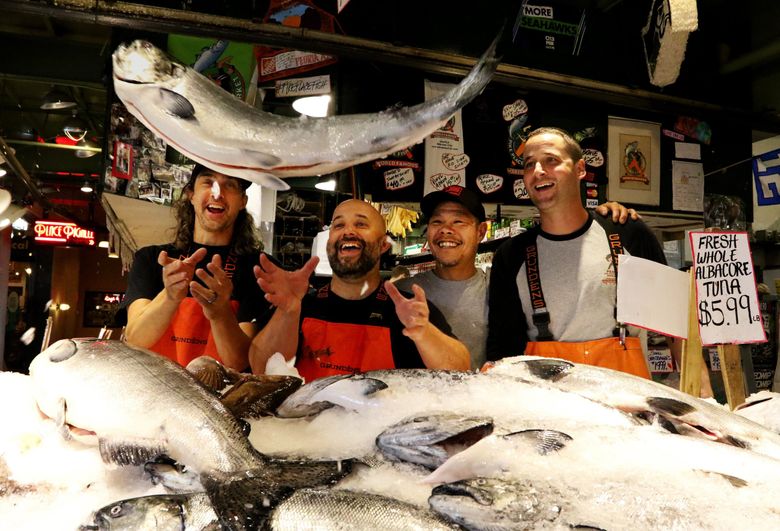As
I stepped into the crowd of people, I couldn't help but cover my nose. The smell of
dead fish could not circulate into the air due to the mass of tourists trying
to get a view of the action. The Pike's Place Market in Seattle is one of the
top tourist spots in the entire city. One might opt to see the city skyline at
the top of the Space Needle or adventure the beautiful greenery of Mount
Rainier, but the fish market gives viewers a spectacle like no other. I somehow
pushed my way to the front, where the first thing that came into view was a
dead fish flying across the market. It was caught by a worker and promptly cut
into pieces, packaged and sold to customers. It was obvious to note that as
people were holding up money to the cashier, the workers kept throwing. At one point,
one worker dropped the fish and it quickly was disposed into the nearest trash
bin. Three years later, I couldn't help but remember this incident as we were
reading "Consider the Lobster" in class. This got me thinking, as lobsters
" cling to the containers sides, or even hook its claws over the kettle's
rim", is there an immoral effect on a fish's dead body being thrown around
for the enjoyment of the customers to watch? In this case, there is a big
difference in these two instances. The lobster is alive and the fish is dead.
However, the fish is not mainly being killed for how good it tastes because the
customers can go to any other fish market where they will serve fresh or even fresher fish. Customers mainly come to see fish flying in the
air. This means that the fish are mostly being killed not for enjoyment during
consumption, unlike the lobster, but for visual appeal to gain customers.
Moreover, in the long-run, what would happen if all the fish that they use goes
extinct from over fishing or disease? It would be a lose-lose situation for the
fish and the sellers. Conversely, the idea that these sellers at Pike's Place
have is a good one in that they are the most famous fish market in the entire
country. They probably gain millions of dollars every year, solely for their
entertaining way of business. Still, every fish that they drop is disposed, meaning a wasted life. This type of dilemma has caused great amounts
of controversy for decades and the circumstances seem like they won't end
for a while. So, from the time I stood there in Pike's Place Market watching
fish fly three years ago, I still ponder which is more important: The enjoyment
of humans or the life of an animal?

No comments:
Post a Comment